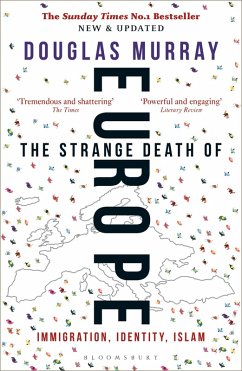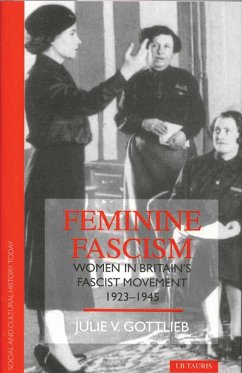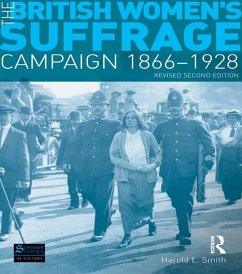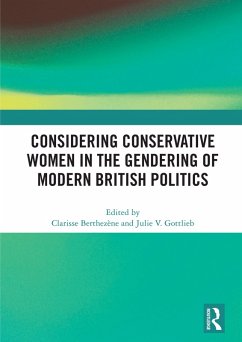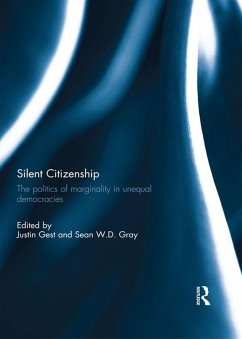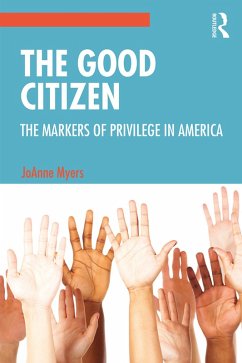
Conservative Suffragists (eBook, PDF)
The Women's Vote and the Tory Party

PAYBACK Punkte
38 °P sammeln!
As the suffragette movement was becoming increasingly militant what was the Conservative reaction to successive parliamentary bills on women's suffrage and what was the level of support for votes for women within the Tory party? After the 1867 Reform Bill, Conservatives were hesitant about supporting further measures to widen the franchise. Although a few party members supported John Stuart Mill's proposal for women's suffrage, and some notable individual Conservative women were part of the early organised campaigns for female enfranchisement, the period before the 1880s saw little interest in...
As the suffragette movement was becoming increasingly militant what was the Conservative reaction to successive parliamentary bills on women's suffrage and what was the level of support for votes for women within the Tory party? After the 1867 Reform Bill, Conservatives were hesitant about supporting further measures to widen the franchise. Although a few party members supported John Stuart Mill's proposal for women's suffrage, and some notable individual Conservative women were part of the early organised campaigns for female enfranchisement, the period before the 1880s saw little interest in this issue among the party faithful. It was only when the grassroots Primrose League was created in 1883 that the suffrage question was taken up by a number of its women members.One of the most significant gaps in our knowledge of the British women's suffrage movement is how the Conservative Party dealt with this controversial issue. In this important reassessment of Conservative women's suffrage, Mitzi Auchterlonie looks at the political activities of Conservative women between 1867 and 1914. As the campaigning by the women's suffrage societies intensified and became more militant, Conservative suffragists responded by founding the Conservative and Unionist Women's Franchise Association (CUWFA) in 1908. This became the third largest women's suffrage party of the pre-World War One period.Auchterlonie looks at the activities of this organisation and its publication "The Conservative and Unionist Women's Franchise Review" in depth, enabling readers to understand the social, political, economic and imperial issues which most concerned Conservative suffragists. She charts their campaigning activities at local and national level using primary sources including memoirs of prominent Conservative supporters of women's suffrage. She discusses the relationship between the CUWFA and politicians of all parties as well as their links with other suffrage organisations. Auchterlonie concludes that Conservative women, dismissed by some as marginal to suffrage history, played a significant part in the suffrage campaigns, while the party itself contained an unexpectedly diverse range of views towards the idea of votes for women.




